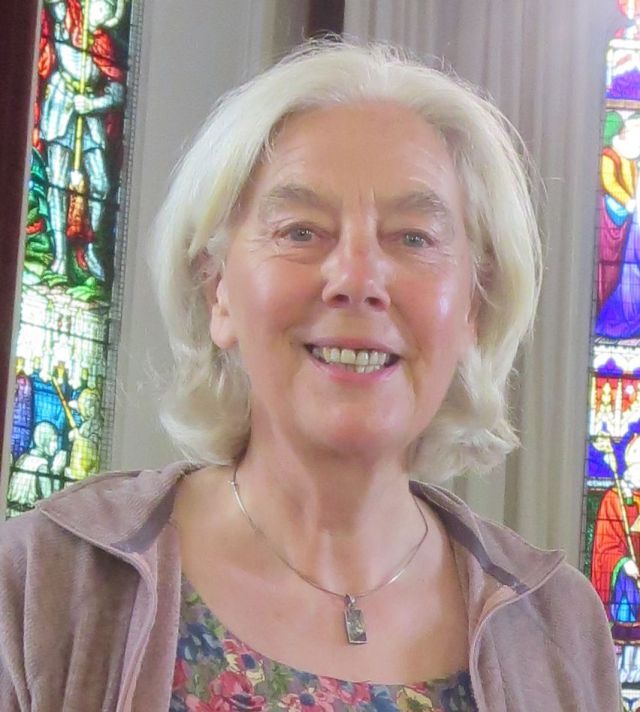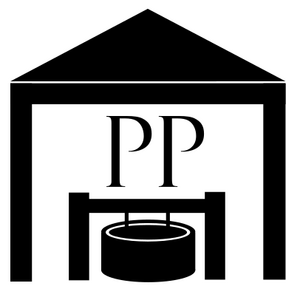
Dr Alwyn Marriage is widely published in magazines, anthologies and on-line, and her fourteen published books include poetry, fiction and non-fiction. She lectured in philosophy at the University of Surrey and edited a journal before being head-hunted to be Chief Executive of two international literacy and literature aid agencies. She was awarded an international Rockefeller scholarship to work on one of her non-fiction books. She has a PhD in Aesthetics, and an MSc in Environmental Architecture and Advanced Energy Studies.
After one of her poetry collections was published, and another commissioned, by Oversteps Books, she was invited to take over as Managing Editor when the previous Editor became ill; and she has run this poetry publishing house successfully since 2008. She is a research fellow at Surrey University, has held Poet in Residence posts with Ballet Rambert and Winchester Arts Festival and has won several prizes for her work. She gives frequent guest lectures and poetry readings all over Britain, Europe, Australia and New Zealand, and greatly enjoys interacting with live audiences. Alwyn serves on the Society of Authors Poetry and Spoken Word Group committee. She is a member of Poets for the Planet and played an active part in their Twitter campaign, #BeginAfresh. She has belonged to the Poetry Society for many years, and is a member of the Devon Company of Poets and Moor Poets.
Her most recent poetry collections are In the image: Portraits of Mediaeval Women (Indigo Dreams 2017) and Pandora's Pandemic (SPM Publications 2021); and her recent novels are Rapeseed (Stairwell Books, 2017) and The Elder Race (Bellhouse Books, 2020). In June 2022, Palewell Press launched Alwyn's latest poetry collection - Possibly a Pomegranate
More details can be found at www.marriages.me.uk
Review of Possibly a Pomegranate for Tears in the Fence
The pomegranate with its abundant red seeds provides a perfect motif for these poems which are subtitled ‘A Celebration of Womanhood’ – a theme which Alwyn Marriage explores across different cultures through memory, creativity, and myth. The theme of fruit is a constant in the collection. The title poem offers the fascinating suggestion that it may have been a pomegranate that tempted Eve in the Garden of Eden but I was mostly intrigued by the background etymology that shows how the word malum, in Latin, is synonymous with both evil and apple – a confusion perpetuated by artists ‘down the ages’ who have given ‘flesh to the mythical fruit’ and displayed it as an apple in all its ‘juicy plumpness’. These are the key words – ‘juicy plumpness’ – which reference birth and motherhood in Possibly a Pomegranate where women offer ‘breasts to infants’ and ‘feel/their life force flow’ (‘Saturday’s Child’). In the poem ‘Skin’ an infant that is ‘firm, plump, soft,’ snuggles up close to the narrator who inhales the ‘sweetness’ of the baby with its ‘perfume of a fig that’s ripe for eating.’
Poems in this collection describe growth, decline and renewal not only in womanhood but also in nature and its effect on emotions and knowledge. The poet considers ‘the mystery of life’ by discovering ‘the green heart/of the woods’ (‘Field Trip’), an experience which becomes visionary and mystical:
AWARE
— of air
still when I am still
moving when
my body moves
— of forest floor
deep pile of leaves
echoed here
in carpet, soft
receptacle for feet
— of this mysterious
collection of particles
translated into skin and bones,
warm flesh and hair
that’s open to everything
that surrounds me,
that is in me
that is me
breathing a world
into existence
— and in spite of pain
within, without,
I see and feel
that it is good.
The aspect of Possibly a Pomegranate that most appeals to me is Alwyn Marriage’s skill in weaving and telling stories. In the title poem she claims that ‘our oldest stories sometimes hold/more truth than history’ and emphasises ‘the creative mind/of generations’ that devise explanations ‘for the way things are’. Two narratives I particularly enjoy in the collection are ‘Finger four’ and ‘The clue lies in the lady’s toe’. The first is a memory of a teenage love, a song-like poem where the girl and Jimmy the young boy are singing while they are fishing and the hook on his line draws blood from the fourth finger of the girl’s left hand, her ‘ring’ finger, and this becomes ‘a faint reminder of a Scottish boy/who though he sang so sweetly on a sunny day,/failed to catch any fish, or me.’
The lady’s toe poem was written after seeing the bronze statue of a king and queen on a Scottish hillside and wondering about ‘the different texture of the metal on/the king’s right knee’ which is so smooth. The humorous conclusion to the poem comes in the final stanzas where a sheep, like a pilgrim kissing a statue of the virgin Mary, ‘sidles up to the impassive king/and meditatively rubs her rump/against his knee.’
Possibly a Pomegranate offers a wide range of tonal effects from the joyful to the poignant, the amusing to the profound. Throughout it is the observation of details, both quirky and everyday, that intrigue and fascinate – details as small as cherry stones uncovered amongst ‘flint and rubble’ in what was once a small town garden. Evidence, says the narrator, that ‘at least one person/on a number of occasions in summers long ago/sat in this garden spitting cherry stones.’
Alwyn Marriage has written a varied and enchanting collection here. It is finely produced by Palewell Press.
Mandy Pannett - October 2022
Review of Possibly a Pomegranate for #67 The Journal
Alwyn Marriage explores womanhood, from the first woman, Eve, through childhood, into middle age and beyond. The title poem speculates on the fruit in the garden of Eden, musing that the Latin malum means, depending on context, evil or apple so the fruit may have been pomegranate and not actually an apple. From childhood, in "The cruelty of schoolgirls", "The memory of what you must have suffered shames me into realising I was a schoolgirl bitch. Little things can sometimes fan the flames so I'm sorry that I used to call you names." The poem is a sonnet with two rhymes based on 'flames' and 'bitch'. It takes bravery to own our actions and the poem doesn't attempt to blame peer pressure although readers don't find out if the person being apologised to saw the apology.
Love and its frustrations are a big theme in the central sections. A wife notes her husband has a female "GPS" voice, "Amazed, I watch you meekly follow her directions with no sign of argument or irritation. I can't believe the fundamental change I see in you, and marvel at this new relationship. You clearly trust a distant satellite more than you trust your wife." How many wives have been enraged by a husband who doesn't listen to them but takes an idea or direction on board when a third party suggests it?
Marriage's eye turns to famous women in history in the final section with poems about or concerning Sappho, Venus of Willendorf, Cleopatra, Lot's wife, St Hildegard, Eleanor of Castile, amongst others, and Jane Austen. "Jane Austen's tombstone" follows a visit to Winchester Cathedral, and uses that famous first line, "It is a truth that she was one of our greatest writers and that when she died it was more or less universally acknowledged that a woman should be commemorated by who her father was, not who she was or what she did. On the other hand it was generally accepted that a single man in possession of a good fortune was master of the universe and as a benefactor of the Church had a voice that was heard and a will that was obeyed. In other words, the assumption was that a woman must be in want of a man to validate her as a person and that her only contribution to society was in the role of a wife." Austen's heroines became wives, although the author didn't. The poem feels a little too on the nose and perhaps could have employed some wit.
"Possibly a Pomegranate" is a woman's lot, past and present and ongoing. The saltiness is tempered with dashes of humour and wry observation.
Emma Lee - October 2022
Contact Information
Camilla Reeve, Senior Editor
© Copyright Palewell Press Ltd 2024
Registered in England. Number 10473109. Registered Office 89 Sheen Lane, London SW14 8AE
